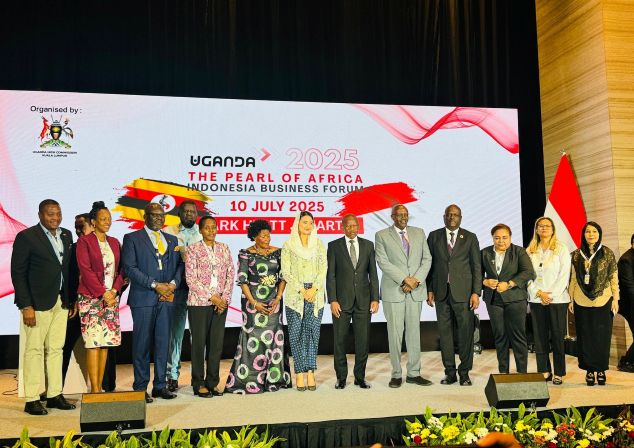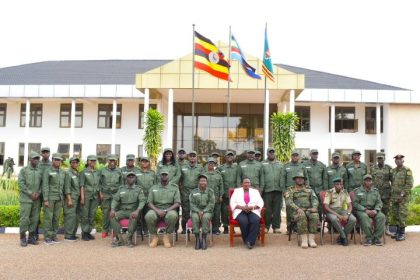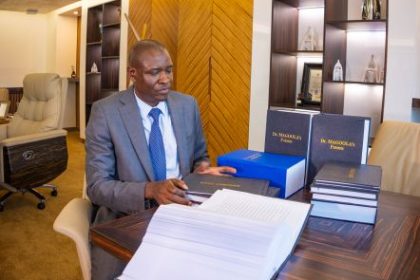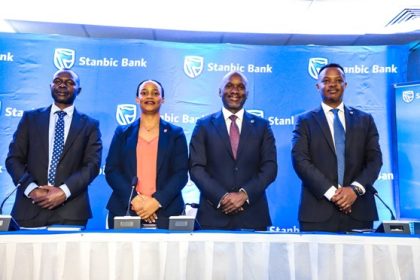Uganda courts Indonesian capital in strategic bid to anchor southeast Asia–Africa trade

Uganda has positioned itself as a strategic investment hub for Southeast Asia, following a high-level business forum held in Jakarta aimed at deepening economic and diplomatic ties between Uganda and Indonesia.
Hosted at Park Hyatt Jakarta, the Uganda–Indonesia Business Forum brought together a powerful cross-section of government officials, private investors, and trade stakeholders to explore synergies in tourism, minerals, trade, oil and gas, digital innovation, and halal logistics. The event marked a new chapter in Uganda’s ongoing drive to court foreign investment by showcasing its expanding opportunities within the East African region and beyond.
The forum comes amid growing trade momentum between the two nations. Bilateral trade jumped more than fivefold from USD 8.9 million in 2020 to USD 52.8 million in the first four months of 2025 alone, according to Indonesian Vice Minister of Trade Dyah Roro Esti Widya Putri. “This business forum or expo is a very special and unique one. One that is aimed to increase and boost our international trade, also our international relations,” she said, highlighting Indonesia’s commitment to expanding its African partnerships.
Uganda, a member of regional economic blocs such as the East African Community (EAC), the Common Market for Eastern and Southern Africa (COMESA), and the African Continental Free Trade Area (AfCFTA), is leveraging these platforms to position itself as a production and export hub for Southeast Asian firms targeting Africa’s fast-growing consumer markets. With a domestic population of over 48 million and access to a regional market exceeding 300 million, Uganda’s scale and geographic positioning offer compelling advantages for long-term investment.
At the forum, Uganda showcased a broad range of sectors primed for investment. The country is seeking partners to help expand its ICT and digital services industry, including business process outsourcing centres, coding academies, and mobile application development. Agribusiness, especially rice cultivation, is another priority area aimed at strengthening food security and reducing import dependence.
The textile and garment sector also holds significant potential, with Uganda offering cost-effective labour and favourable conditions for export-led production. In tourism and hospitality, Uganda presented opportunities in eco-lodges, resorts, and service training, while the mining sector—including mineral exploration, processing, and oil and gas infrastructure—remains central to Uganda’s long-term economic strategy.
One of the event’s highlights was the signing of a Memorandum of Understanding between Uganda and the Association of the Indonesian Tours and Travel Agencies (ASITA), formalising cooperation in developing tourism infrastructure. This agreement builds on a government-sponsored familiarization tour in late 2024, during which ASITA members visited Uganda to assess the investment climate in the hospitality and infrastructure sectors.
Dr. Betty Oyella Bigombe, Uganda’s High Commissioner to Malaysia, described the forum as a milestone in bilateral relations. “This Business Forum marks a new era of cooperation defined by strategic alignment, mutual economic growth, and partnerships that go beyond commerce to embrace innovation, sustainability, and inclusive development,” she said.
Uganda is also looking to grow its role in global halal markets. As a member of the Organization of Islamic Cooperation (OIC), the country has prioritized the development of halal logistics—specialized supply chains that ensure halal compliance throughout handling, storage, and transportation. Indonesia, as one of the world’s largest halal economies, is expected to play a significant role in supporting Uganda’s ambitions through training programs, technical assistance, and knowledge exchange.
To attract and retain investment, Uganda has implemented investor-friendly policies, including a 10-year tax holiday for strategic sectors, full repatriation of profits, and no restrictions on reinvestment. The country also offers zero import duty on plants and machinery, a three-year income tax holiday for Ugandan-owned startups, and permits 100% foreign company ownership.
The forum, which included presentations on Uganda’s investment landscape, curated networking sessions, and public–private dialogues to address trade barriers, served as a platform for shaping a new model of South–South cooperation. With its wealth of natural resources, expanding digital infrastructure, and vibrant youth population, Uganda is emerging as fertile ground for sustainable investment and innovation.


 Government reaffirms commitment to capitalise UDB as Bank deepens development finance role
Government reaffirms commitment to capitalise UDB as Bank deepens development finance role
 Uganda’s DEI Biopharma gene therapy breakthrough could transform sickle cell treatment
Uganda’s DEI Biopharma gene therapy breakthrough could transform sickle cell treatment
 Equity Bank Uganda set to close 2025 on firmer footing as clean-up phase gives way to growth
Equity Bank Uganda set to close 2025 on firmer footing as clean-up phase gives way to growth
 Stanbic targets wider access to affordable financing with ‘Oli In Charge’ campaign
Stanbic targets wider access to affordable financing with ‘Oli In Charge’ campaign
 USA–Canada certification dispute could expose Uganda and regional airlines to regulatory risk
USA–Canada certification dispute could expose Uganda and regional airlines to regulatory risk
 Sumsub launches AI Agent Verification as Africa grapples with surge in AI-driven fraud
Sumsub launches AI Agent Verification as Africa grapples with surge in AI-driven fraud